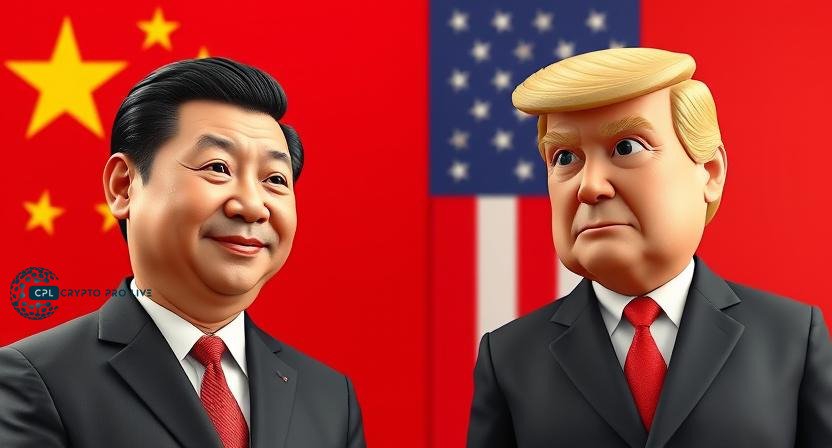In a significant escalation of trade tensions, China has reportedly imposed restrictions on its domestic companies, preventing them from investing in the United States. This move is widely interpreted as a strategic response to President Donald Trump’s recent implementation of extensive tariffs targeting Chinese imports.
China and U.S Backdrop of Intensifying Trade Frictions
The trade relationship between the U.S. and China has been increasingly strained, marked by a series of reciprocal tariffs and countermeasures. President Trump’s administration has levied substantial tariffs on Chinese goods, aiming to address what it perceives as unfair trade practices and to reduce the trade deficit. In retaliation, China has not only imposed its own tariffs on U.S. products but has now taken the additional step of curbing outbound investments into the American market.
Strategic Implications of Investment Restrictions
By limiting investments in the U.S., China appears to be leveraging its economic influence to gain a more favorable position in potential trade negotiations. This tactic underscores the multifaceted nature of the ongoing trade war, extending beyond tariffs to encompass broader economic strategies. The immediate effect is a potential cooling of Chinese capital flows into U.S. industries, which could have ramifications for sectors that have traditionally benefited from such investments.
Read Also: Trump Announces India Has Agreed to Cut Tariffs Way Down
Impact on Global Markets and Cryptocurrency
The escalation in trade restrictions has introduced heightened volatility into global financial markets. Investors are increasingly seeking alternative assets to hedge against the unpredictability of traditional markets. Cryptocurrencies, particularly Bitcoin, have emerged as a favored option in this context. The decentralized nature of digital currencies offers a level of insulation from geopolitical tensions, making them an attractive store of value during periods of economic uncertainty.
As of April 2, 2025, Bitcoin’s price stands at $86,324, reflecting a 1.4% increase from the previous close. This uptick is indicative of the growing investor confidence in cryptocurrencies as a hedge against traditional market fluctuations.
Broader Economic Consequences
The mutual imposition of tariffs and investment restrictions between the U.S. and China is likely to have far-reaching economic consequences. Industries that rely on cross-border investments may experience slowdowns, and the increased cost of goods resulting from tariffs could contribute to inflationary pressures. Moreover, the uncertainty surrounding trade policies may deter future investments, potentially stymieing economic growth on both sides.
The current trajectory of U.S.-China trade relations suggests a protracted period of economic maneuvering. Both nations are employing a range of tactics, from tariffs to investment controls, in an attempt to assert their positions. For investors and market participants, staying informed and agile will be crucial in navigating the complexities of this evolving landscape. Diversification, including consideration of alternative assets like cryptocurrencies, may provide a buffer against the uncertainties that lie ahead.
In conclusion, China’s recent decision to restrict its companies from investing in the United States marks a significant development in the ongoing trade dispute. This action not only reflects the deepening rift between the two economic powerhouses but also highlights the broader implications for global markets and investment strategies.



















